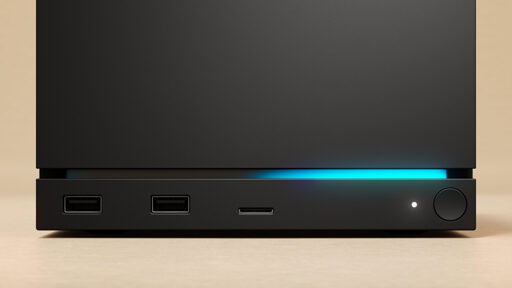- cross-posted to:
- [email protected]
- cross-posted to:
- [email protected]
The title is a bit misleading, as the article lists diverging analysts’ opinions, ranging from Valve willing to sell at a loss or low margins, to high prices due to RAM and SSD price volatility.
cross-posted from: https://lemmy.blackeco.com/post/2330473



They already tried that with the original steam machines and it flopped hard. It’ll be significantly better value or it’ll flop again, simple. They’re clearly optimizing for price based on the vram/ram specs. Yeah maybe it’ll go up after launch but out of the gate it’ll be sub-$500/512gb otherwise the whole exercise is pointless
This isn’t why it failed. It failed because the software, user experience, and compatibility was immature. That is no longer the case, as proven by the steamdeck, and offering a mature ecosystem with VR, controller, and console/PC that all interact seamlessly will be the major selling point.
I’m expecting $799.99 for the low storage model, and if it performs as well as a typical $1000-$1200 PC, I think they’ll enjoy the same level of adoption seen by the Steamdeck. The target will be people looking for an entry level to PC gaming, and current PC enthusiasts on lower end hardware looking for an upgrade that’s simple and reasonably positioned price wise against traditional PCs.
It failed for multiple reasons, but a big reason was that they tried to outsource the hardware and basically just got reskins of existing gaming-PC prebuilds, which didn’t actually make PCs any less confusing. And they didn’t actually save money (and some were overpriced scams) so buyers were basically forced to do as much research as buying an actual gaming PC.
All of that will be solved, and the software/UX/other stuff you mentioned are far more mature, like you say.
Also some of those old steam machines were comically expensive, in part because all the different vendors wanted a cut, in part because some of them made new cases
edit: found a spec sheet for the cheapest version of Bolt II, for almost $1800 you got a gtx 760 and i5 4590, 16 gigs of ddr3, 120gb ssd + 1tb hdd. All of it air cooled. I don’t remember new hardware prices back then but it seems steep. And it’s far from the most expensive one.
edit2: on the other end of the spectrum, for $400 (without an OS) you could get ibuypower’s SBX with an athlon x4 840, 4 gigs of ram and an r5 250X
I don’t see it as a killer feature. In fact, the main advantage of these individual devices (as in the new ones, not Steam Deck) is that you don’t need the others, rather than that they interact seamlessly.
e.g with Steam Frame, you don’t need a gaming PC to actually run Half Life Alyx to be able to play it. If you already have a gaming PC, at most it offers minor advantages over any other VR headset.
e.g with Steam Machine, you don’t need a gaming PC to engage with the Valve ecosystem and play on your TV. If you already have a gaming PC, you can already stream it to your TV for free.
Also, ecosystem maturity won’t fundamentally change that as a prospective steam machine customer, you will still need to configure game settings. You will still accidentally touch the trackpads in a way that causes issues in some games. Granted, the relative maturity and design improvements will make a big difference. But it’s more of a difference in customer retention and satisfaction than a difference that will get Valve’s foot in the door with someone invested enough in gaming to prefer a more open ecosystem, yet not invested enough to already own an equivalent console or equivalent/better gaming PC.
There are many ways they could leverage a lower cost which Sony/MS can’t/won’t, e.g. make generic controllers compatible, sell the console without one, recoup margin on steam controllers (one of the highest-margin tech product categories around these days)
Competing with the console prices is not likely. Not only will they probably sell hardware at a loss, but they step on Sony and Microsoft territory, with whom they have deals to bringing games to steam.
Selling at a loss works for consoles because games will recoup the loss. For pc there is no guarantee. If the steam box is that cheap, corporate sector will order steam machines (by the 100s or 1000s), without guarantee to recoup the loss.
Microsoft and Sony have no leverage at all over Valve when it comes to PC sales. Reneging on their deals to bring their published games to Steam would only mean fewer sales.